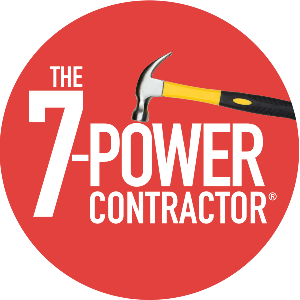Too Many Hands on the Steering Wheel
Jul 22, 2013
PC.
Not personal computer. In this instance, I’m referring to being Politically Correct.
It has served us well to modify some truly bad behavior as a society.
But, it has inherent dangers when it comes to running a business. Know that I’m ONLY speaking to being politically correct as it applies to letting everyone in management have the same amount of power and leadership at a company at the same time.
That’s because there’s a real danger when everyone is trying to “steer the company car at the same time.” When I say company car, I’m referring to your business.
It’s not only difficult to drive a car with more than two hands on the wheel but it’s not if you’ll crash but when.
That’s why someone must assume the leadership role at your company. And this can be a very sticky subject when there are multiple partners and/or family members to deal with.
If there are no defined roles and accountability for management, chaos can and will be the rule of the day.
I know because I do consulting work with many family businesses and businesses where there are multiple partners. Here’s the quirky thing….non-related partners act like their family anyway.
The best of these companies have defined who gets the tie breaking call on key decisions. Sometimes, it’s based on ownership stake. Sometimes, it’s based on pecking order from the family dynamics. Sometimes, nature abhors a vacuum and someone has realized that and they have stepped up to fill the role as leader.
A great leader is not an autocrat who rules by mandate and dictatorship. They are just better able to see “a mile down the road” and see the prize that awaits. Then, they work very hard to share that vision and passion for why the whole company must pursue this goal. They know that they must cultivate the trust of all who are at the company…but…especially other family members and/or their non-family partners.
Businesses operates like families whether anyone is related or not.
The only question remain is what type of family does the business operate like? Is it a dysfunctional family? Is it paralyzed by strained interpersonal relationships that were forged years ago and as new family members arrived they were anointed and not tested? Or, is it one of the lucky ones that is both supportive and has true structure to it?
Are there management members who feel entitled by birth? Were they brought onboard with clear expectations of how they earn [and continue to earn] their seat at the table? Not likely but understandable.
In the case of many non-family related partners, there was once an informal understanding amongst these partners about the once common goal they shared. But, that goal may have been reached and there is no plan in place for what’s next. Or, the goal has proven to be too elusive to continue to pursue. Sometimes, partners have outgrown one another and life has changed their perspectives and individual goals for what they want out of business and life. But, there is no strategy for a smooth transition out.
The result can be too many people fighting about what should be going on or not going at the company today. No decisions can be made without tons of unproductive meetings that end up creating hard feelings and procrastination on time-sensitive issues.
The staff gets caught up in this messy situation and doesn’t know who to please and how. That’s because ownership is “up a creek without a paddle” or worse they’ve got two paddles but they’re paddling in two different directions.
How does this get fixed?
Here 7 key things to do:
- Create an Organizational Chart that spells out the boxes it takes to run your company.
- Make the hard decision about who occupies which box and who backs who up when someone is on vacation or overloaded.
- Have short frequent management meetings to get on the same page so you stop whipsawing your staff.
- Decide who of you gets the tie breaking vote. And if you can’t agree on that find a 3rd party that you can go to for objectively breaking a potential gridlock situation.
- Objectively define how a family member or partner must behave in the box they occupy and how they would get removed if need be.
- Have a current buy-sell in place.
- Have a defined policy about how family and friends get recruited, hired, oriented, trained and reviewed for either promotion or removal.
Do this and your company car will be flying down the highway of success!
Subscribe to The 7-Power Contractor® Letter for Even More Great Content!
And get our handy Toolkit chock full of helpful information



